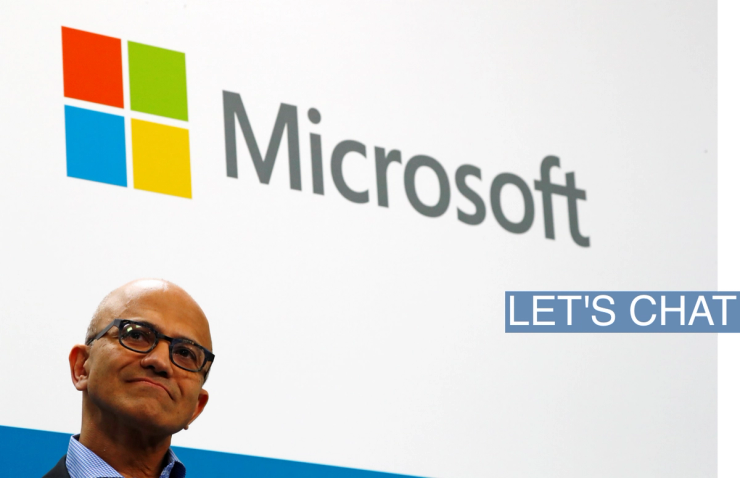The Scoop
Microsoft has been in talks to invest $10 billion into the owner of ChatGPT, the wildly popular app that has thrilled casual users and artificial-intelligence experts since its latest software was released last month, people familiar with the matter said.
The funding, which would also include other venture firms, would value OpenAI, the firm behind ChatGPT, at $29 billion, including the new investment, the people said. It’s unclear if the deal has been finalized but documents sent to prospective investors in recent weeks outlining its terms indicated a targeted close by the end of 2022.
Microsoft’s infusion would be part of a complicated deal in which the company would get 75% of OpenAI’s profits until it recoups its investment, the people said. (It’s not clear whether money that OpenAI spends on Microsoft’s cloud-computing arm would count toward evening its account.)
After that threshold is reached, it would revert to a structure that reflects ownership of OpenAI, with Microsoft having a 49% stake, other investors taking another 49% and OpenAI’s nonprofit parent getting 2%. There’s also a profit cap that varies for each set of investors — unusual for venture deals, which investors hope might return 20 or 30 times their money. The terms and the investment amount could change, and the deal could fall apart.
Microsoft and OpenAI declined to comment. The Wall Street Journal reported last week that ChatGPT was allowing employees and early investors to sell their shares at a valuation of $29 billion. The Information reported in October that Microsoft, which had invested $1 billion in cash and cloud credits into OpenAI in 2019, was in talks to increase its stake.
In this article:
Reed’s view
The $29 billion is a big valuation for OpenAI, a company that hasn’t yet figured out its business model, and $10 billion is a big price tag for Microsoft’s shareholders.
But Microsoft’s investment isn’t much of a gamble. ChatGPT is bleeding money: Each time someone engages with its chatbot, it costs the company a few cents in computing power, according to Sam Altman, CEO of OpenAI. But it’s going to be spending most of it on Microsoft’s cloud business, which is working hard to reach parity with competitor Amazon Web Services.
If OpenAI figures out how to make money on products like ChatGPT and image creation tool Dall-E, Microsoft will get 75% of the profits until it recoups its initial investment.
Beyond the financial risks and rewards for Microsoft, the bigger prize is that it gets to work alongside OpenAI in developing the technology on Microsoft Cloud, which instantly puts Microsoft at the forefront of what could be the most important consumer technology over the next decade.
That’s a huge coup for Microsoft, especially considering Google, a rival, has helped pioneer some of the technology used by OpenAI. Microsoft was also in talks to incorporate some of those features into its other programs, like Word and Outlook email, The Information reported.
Room for Disagreement
The $10 billion investment by Microsoft is a bet that OpenAI will remain far ahead of other companies using the AI algorithms that underlie products like ChatGPT. But it’s likely OpenAI will face fierce competition from companies like Stability AI.
It still isn’t clear how this new crop of AI companies will dig out “moats” and “network effects” that keep competitors at bay. Without that, it’s difficult to make money in consumer technology.
The View From ChatGPT
We asked ChatGPT itself to write a story about Microsoft investing $10 billion in OpenAI from the point of view of a Wall Street analyst.
It was a typical weekday morning on Wall Street. Traders and analysts bustled about, checking their screens and huddling in conference rooms. Suddenly, the news broke: Microsoft was investing $10 billion in OpenAI, the leading artificial intelligence research lab.
As a top analyst at a major investment firm, I was immediately intrigued. I had been following OpenAI’s progress for years, and knew that they were at the forefront of AI research. Their work on natural language processing, machine learning, and robotics had the potential to revolutionize industries ranging from healthcare to transportation.
But $10 billion was a huge sum, even for a company like Microsoft. Why were they making such a massive investment?
I quickly did some research and dug deeper into the details of the deal. It turned out that Microsoft and OpenAI had been working together for some time, collaborating on various projects and sharing resources. This investment was essentially a formalization of that partnership, allowing the two companies to join forces and accelerate their research.
But there was more to it than that. As I delved further into the news, I realized that this investment was about much more than just research. It was about positioning.
Microsoft, like many other tech giants, was laser-focused on the future of AI. They knew that the companies that controlled the technology would have a significant advantage in the years to come. By investing in OpenAI, they were positioning themselves at the forefront of this revolution.
As I shared my analysis with my colleagues and clients, the excitement was palpable. This was a game-changing move, one that would have ripple effects throughout the tech industry and beyond.
In the weeks and months that followed, the partnership between Microsoft and OpenAI yielded incredible results. Their joint research led to breakthroughs in natural language processing and machine learning, and they developed new technologies that were quickly adopted by companies around the world.
As a Wall Street analyst, it was gratifying to see my predictions come true. And as the world continued to be transformed by AI, I knew that this was just the beginning. The future was bright, and Microsoft and OpenAI were leading the way.

